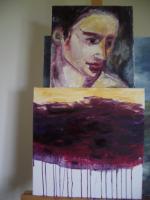-
Courses

Courses
Choosing a course is one of the most important decisions you'll ever make! View our courses and see what our students and lecturers have to say about the courses you are interested in at the links below.
-
University Life

University Life
Each year more than 4,000 choose University of Galway as their University of choice. Find out what life at University of Galway is all about here.
-
About University of Galway

About University of Galway
Since 1845, University of Galway has been sharing the highest quality teaching and research with Ireland and the world. Find out what makes our University so special – from our distinguished history to the latest news and campus developments.
-
Colleges & Schools

Colleges & Schools
University of Galway has earned international recognition as a research-led university with a commitment to top quality teaching across a range of key areas of expertise.
-
Research & Innovation

Research & Innovation
University of Galway’s vibrant research community take on some of the most pressing challenges of our times.
-
Business & Industry

Guiding Breakthrough Research at University of Galway
We explore and facilitate commercial opportunities for the research community at University of Galway, as well as facilitating industry partnership.
-
Alumni & Friends

Alumni & Friends
There are 128,000 University of Galway alumni worldwide. Stay connected to your alumni community! Join our social networks and update your details online.
-
Community Engagement

Community Engagement
At University of Galway, we believe that the best learning takes place when you apply what you learn in a real world context. That's why many of our courses include work placements or community projects.
AWC Blog
Looking back... Words and their Meanings: a Visual Exhibition
If you are interested in the changing meaning of everyday words, staff-student collaboration projects, and invading Vikings, read the story of the 2012 exhibition, and the launch speech by Dr Frances McCormack.
 |
We are accustomed to see words accompany images in advertising and design. We know the power of such words as ‘danger’, ‘excellence’ or ‘glamour’, but we are not always aware of their origins or earlier meanings. When we say the word clouds, we do not think of a stone or a lump of earth. When we speak of danger, we do not think of a landlord’s dominion. The word glamour, commonly associated with pop culture and fashion industry, used to mean witchcraft. At its source, however, ‘glamour’ is a corrupt form of ‘grammar’. Such changes are indications of the changing attitudes of the speakers of the language; they are records of misunderstandings as well as new ideas, scientific progress, and wars.
Working with the Academic Writing Centre, NUI Galway artists represented in this exhibition, created a visual commentary on the meanings of various words. Each contributor to this exhibition selected a single word to explore. The primary source for the artists’ research was the Oxford English Dictionary as well as a word list created by the Academic Writing Centre. Etymological dictionaries were used for Irish words. Artists used a variety of media including painting in watercolours and oils, photography, collage, and digital image manipulation.
Words and Their Meanings exhibition was a staff-student collaboration project. The leaders of the project, Dr Irina Ruppo Malone (AWC), James Simmons (AWC), and Helen McFarlane (Art Soc), acknowledge the generous funding of the EXPLORE Initiative (supported by the Students’ Union and the Firelighter Bright Ideas Initiative) and the support of the James Hardiman Library. The exhibition was held at the James Hardiman Library in September 2012.
Words and their Meanings: Launch Speech
Dr Frances McCormack,
English, National University of Ireland, Galway
Prescriptivist grammarians, broadcasters, and bewildered parents frequently bewail the decline of the English language, and often censure younger generations for their ‘sloppy’ use of English. I grew up in Dublin, and I remember how my peers’ use of ‘deadly’ as a word of approbation frequently provoked outrage from teachers, who would exclaim, ‘snakebites are deadly; that song is not!’ This word, however, was the one that really sparked my interest in historical linguistics, and I have become something of an anorak (another word that has changed in meaning), listening out for examples of semantic change, and keeping lists of my favourite examples.
The English language has undergone a series of transformations that make its earliest written forms almost unintelligible to the untrained eye. The Germanic settlers who brought what we now call English to Britain did not even speak the same language; they were mutually intelligible to each other, but there was not yet (nor would there ever be) a truly homogenised form of English. These pagan tribes were eventually converted to Christianity, and they needed new words— Latin words—to represent all of the new concepts and ritual objects that Christianity brought with it. A few centuries later, the Vikings arrived in Britain, and they too made a significant contribution to what we now call English (many of our sk- words, like ‘skill’, ‘skirt’, an ‘sky’ are borrowings from the Old Norse). Then came the Normans (themselves of Norse extraction; that is, distant relations of the Vikings), and their conquest of England introduced a different political system, different art forms, different foods, and, of course, words for all of these. Interestingly, because it was the Norman elite who enjoyed the fruits of labour of the English peasants, Modern English words for meat (like beef, mutton, pork) come from the French, while the words for the animals for which they were produced (cow, sheep, swine) are of Germanic origin.
English continues to borrow words from wherever it can. The African Bantu languages have given us ‘jumbo’, ‘banjo’, ‘funk’, and ‘zombie’. From Hawaiian, we have borrowed ‘ukulele’, ‘luau’, and even the ‘wiki’ in Wikipedia (meaning ‘fast’). We have taken ‘bandana’, ’bungalow’, ‘pundit’, and ‘pyjama’ from Hindu-Urdu. Japanese has given us ‘origami’, ‘karaoke’, ‘manga’, and much more. And a word, once in the language, doesn’t remain fixed or stable. Think of all of the words that have expanded their meanings in the computer age: ‘thumbnail’, ‘mouse’, ‘web’, ‘portal’, ‘memory’. Some words have become narrower (‘meat’ once referred to food in general; ‘to starve’ meant ‘to die’) or wider in their signifcation (‘manage’ once referred to the handling of a horse); others have taken on a more favourable meaning (‘nice’ originally meant ‘foolish’) or declined (‘awful’ originally was a synonym of today’s ‘awesome’) Other words have even come to be used metaphorically (we speak of the Chair of the Faculty, or the powers of the Crown, and originally ‘broadcasting’ referred to a method of sowing seeds).
A living language will always be in a state of flux, and its changes will reflect identity of the people who speak it. How we say what we say is perhaps the most distinctive representation of who we are. This exhibition, ‘Words and their Meanings’, celebrates the fluid, dynamic nature of the English language. The texts explore semantic shifts as a reflection of the culture(s) that they serve, and the visual imagery not only echoes these social changes but also testifies to the connotative power of words: their ability to stimulate, excite, and provoke varied and individual responses from each of us. The exhibition, in short, is deadly!
















